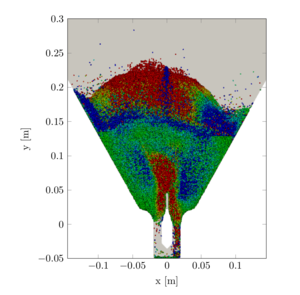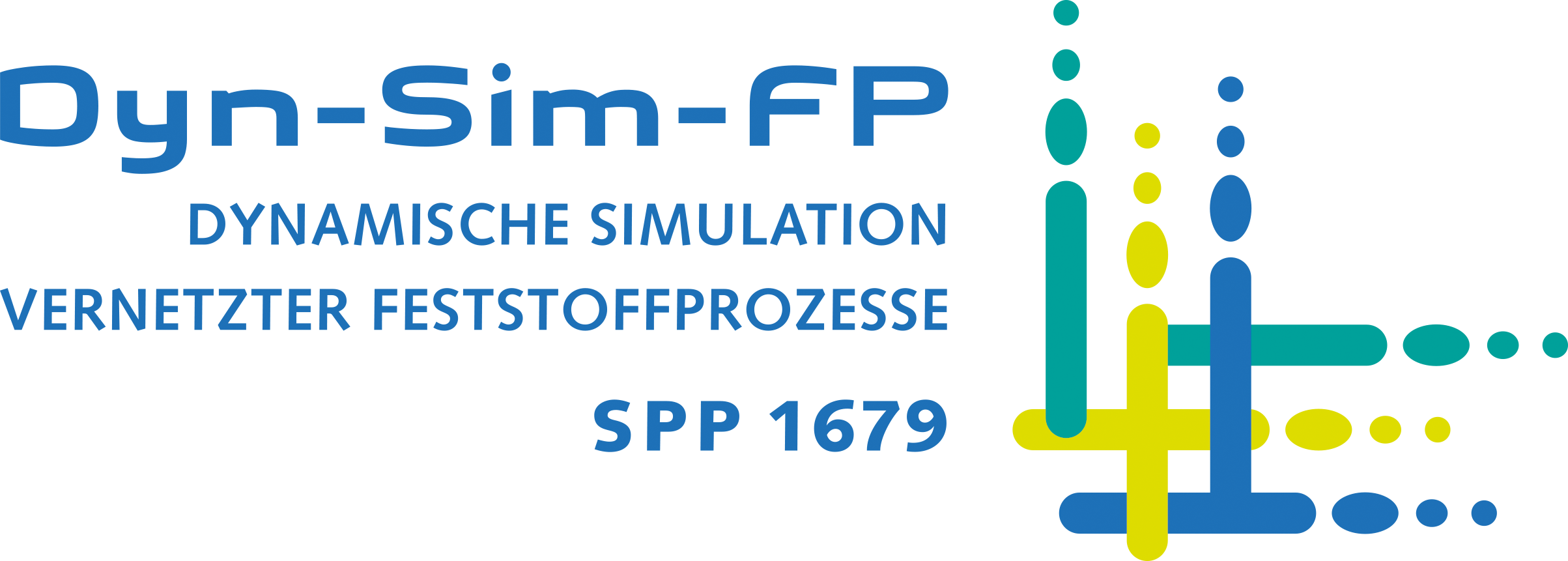Announcements
Talk by Prof. Berend van Wachem on Euler-Lagrange Coupling Strategies
Prof. Berend van Wachem, head of the chair of mechanical process engineering at the Otto-von-Guericke-University Magdeburg, will visit our institute on September 26 & 27. He is an expert in multiphase flow modeling and will give a presentation titled "Consistent Euler-Lagrange approach for particulate flow modelling with arbitrary particle size/mesh resolution ratio". The full abstract can be found here.
Lecture by Dr. Rachel Smith at the TUHH
As part of an SPP colloquium, on November 21, 2018 at 3:00 pm Dr. Ing. Rachel Smith from the Department of Chemical and Biological Engineering at the University of Sheffield is holding a lecture on the topic of "Rate Processes in Particle and Powder Technology" (Abstract). The event will take place in the meeting room of our institute (Room 2511, Building K).
If you are interested in the event you can contact Mr. Buchholz (moritz.buchholz(at)tuhh.de).
Your SPE-Team
Lecture by Prof. Jitendra Kumar at the TUHH
At 1:00 pm on June 19, 2018, Prof. Jitendra Kumar from the Department of Mathematics of the Indian Institute of Technology, Kharagpur, will give a lecture on "Mathematical and Numerical Challenges in Particle Technology" at an SPP colloquium (Abstract). The event will take place in the premises of our institute, to which we cordially invite you!
If you are interested in the event, you can contact Mr. Buchholz (moritz.buchholz(at)tuhh.de).
Your SPE-Team
Lecture by Prof. Pirker at the TUHH

I would like to draw your attention to the lecture of Prof. Stefan Pirker from the Department of Particulate Flow Modeling of the University of Linz (Austria), which will take place in the lecture series of our SPP 1679 on April 3rd at 2:00 pm at my institute.
The topic is:
"Can we bridge between recurrence CFD (rCFD) and process control?“
Abstract:
Recurrence CFD (rCFD) aims at an efficient representation of long-term processes (e.g. heating, chemical conversion) which slowly evolve on highly-dynamic pseudo-periodic flow fields. In such cases classical CFD simulations fail due to excess computational cost associated with the resolution of the governing flow fields.
In the framework of rCFD, short-term full CFD simulation deliver recurrence databases of the governing flow at different operating conditions. Based on statistical reasoning, rCFD then exploits these databases in order to either develop (i) generic flow fields or (ii) generic transport fields, which subsequently serve as basis for the long-term process under consideration. We further present an interpolation methodology for the representation of unsteadily varying operating conditions (i.e. between existing recurrence databases).
In applying rCFD to a set of single-phase and multiphase flows, we experienced a computational speed-up of two (flow based rCFD) to four (transport based rCFD) orders of magnitude. In many cases this dramatic speed-up allows for faster-than-realtime simulations, although we didn’t reduce the resolution of the original full CFD simulation.
Finally, we explore the possibility of incorporating such real-time rCFD simulations into process monitoring and control.
For information about Mr. Pirker (CV):
Prof. Pirker is the PhD supervisor of Mr. Kloss and Mr. Goniva, who manage the company DCS Computing as CEO, and has been working on the rCFD method for several years.
If you are interested in the event, feel free to contact me.
Yours sincerely
Stefan Heinrich


